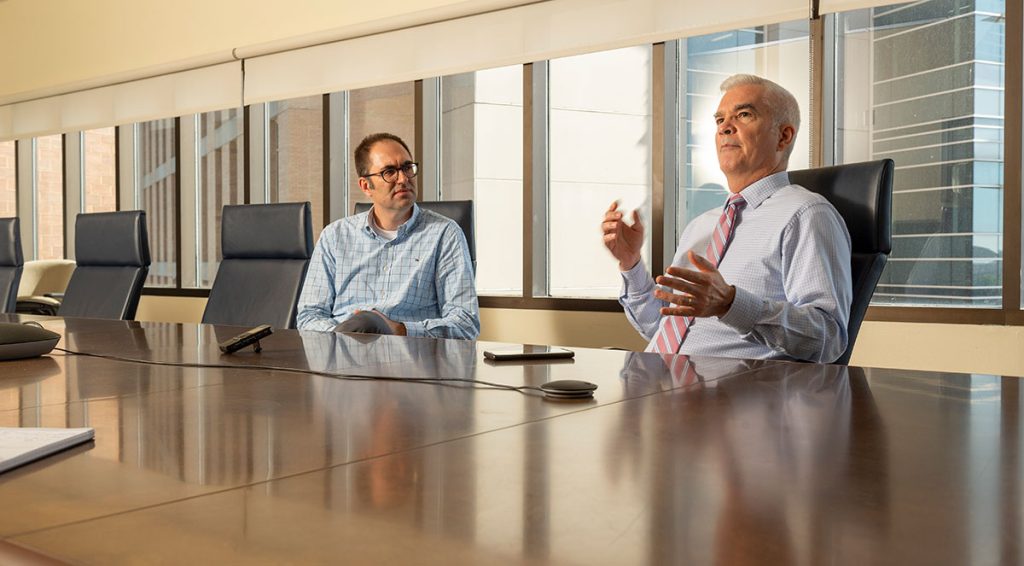13 Feb Mass spec fueling new explorations at the Carbone Cancer Center

Josh Coon and Howard Bailey
When biochemist Josh Coon, Thomas and Margaret Pyle Chair in Metabolism at Morgridge, first started developing scientific instruments to measure molecules in living systems, his criteria for finding partners on campus at UW-Madison were simple and clear.
“We were technology people interested in making better measurements, and we needed cool projects to help us push the technology,” he recalls.
Fifteen years later, that approach has completely flipped on its head. Coon’s lab is the nexus of a prolific network of collaborations on campus, drawing on world-class technology to help push the science.
One of his most prominent partnerships is with the Carbone Cancer Center, using mass spectrometry to help researchers find new ways to prevent and treat cancer.
Mass spectrometry uses instruments to measure the mass of molecules and tell you the chemical structures. When studying cancer, scientists look for molecules, or proteins, that change when cancer cells appear. They try to prove whether those changes in these targets have a direct role in cancer development. And if so, they test ways to stop it.
The seeds of the partnership were planted about a decade ago during a series of meetings aiming to bring tech and cancer people together. Then in 2015, thanks to investments by the Morgridge Institute, the Coon lab began measuring lipids and metabolites, in addition to proteins. With the potential for even more specific studies and potential solutions, “we deliberately sought him out,” says Howard Bailey, who directs the cancer center.
Mass spectrometry is not a commodity technology like DNA sequencing, with scientists paying a set fee for a package of services. The tech teams work with each collaborator to help them design their experiments. That takes a lot of back and forth and it can be one to two years from the first handshake to getting results that are actionable and publishable. “Those deep collaborations are really what makes things work,” says Coon.



